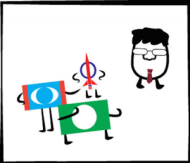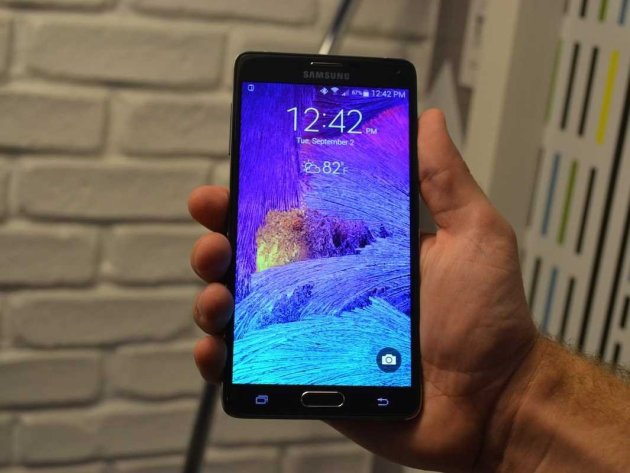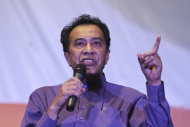More than four months (nine, if you want to be exact) now, and the Selangor MB crisis has finally settled… But settled with a lot of baggage and breakage, too.
If you’ve been following the news, you’d know that the whole Selangor MB crisis has left the state in yet another hot mess. Here’s lowdown #1 to give you a background story, and lowdown #2 to bring you up to speed:
His Royal Highness Sultan of Selangor was given three names – Wan Azizah of PKR and Iskandar Samad and Dr Ahmad Yunus Hairi of PAS. After a few days of suspense, the palace announced their shortlisted candidates, swapping Wan Azizah for Azmin Ali and surprising everyone while at it. Yesterday, Azmin Ali was announced the chosen candidate MB to take over Khalid Ibrahim’s position.
In our first point, we said that the crisis is settled but not with problems. Arguably handled in a less-than-mature way, the crisis has revealed so much weakness in the young coalition, where leaders and their supporters fight against each other in public like children kicking and punching in stark nakedness, oblivious to just how ridiculous they seem. With the party in its volatile state today, it begs the question - how the heck did we get into this mess??
There were too many plot twists…
Think your TVB and telenovelas were dramatic? No evil mother-in-law or jealous ex-lover could fight this. Where movies and soap operas usually introduce one or two plot-thickening conflicts before reaching the climax, falling action and the end, this crisis saw waaay too many twists which snowballed in complexity and fragility:

1. PR first sacked Khalid in July 2014 because they weren’t happy with the way he ran the state. There were many, many, many things involved, including Khalid’s alleged financial aid from the federal gomen and his no-shows at meetings.
2. PR were so mad they even wrote a 40-pg report complaining about his conducts. The report, more like a listicle, had 6 points against Khalid. It includes the RM66.7 million debt settlement with Bank Islam, endorsement of Kidex highway and signing of MoUs between the state and fed. gomen.

3. Khalid spoke to the Sultan about the matter, who then overruled PR’s actions and reinstated his powers to govern the state.
4. In Khalid’s next move, he fired 5 exco members on the account that they were uncooperative. Having signed a letter to form a block aimed at reducing the effectiveness of the state government administration, Khalid sought the Sultan’s consent to terminate the service of the exco members.

5. Anwar then wrote in to see the Sultan, but HRH declined.
6. In the meantime, Wan Azizah gathered supported from the majority. 30 PKR and DAP exco members stood on her side, supporting her in taking Khalid’s place.

6. Khalid, who initially didn’t want to let go of the position, finally decided to step down. The palace then asked PR to submit names of candidates for the next position, and the names were: Wan Azizah (from PKR and DAP) as well as Iskandar Samad and Dr Ahmad Yusuf Hairi (from PAS).
7. After that, the palace issued a statement calling PKR and DAP ‘derhaka’ for providing only one name when they requested for two.

9. The palace then announced their three candidates for the MB position. Instead of seeing Wan Azizah’s name in the list, they saw Azmin Ali’s name instead. (And mind you, although in the same party, sources tell us that the both of them have are of different camps, always against each other.)
10. Pro-Azizah supporters were aghast with the palace’s decision, calling democracy being dead in Selangor and that there was no better candidate than Azizah.

Azmin at his swearing-in ceremony today. Photo from themalaysiantimes.com.my
11. After long last, the new MB was finally revealed. Azmin Ali got sworn in as the new Selangor MB this morning!
Wah lau… Korean drama also cannot fight right? Well, now that you know the backstory, there are other questions to ponder over.
If Wan Azizah had the majority, why isn’t she on the Sultan’s shortlist?

She tried so hard and go so far, but in the end it didn’t even matter. Photo from beliabangkit.blogspot.com
That’s the first question we asked. She’s got the support of the party (except PAS, who has publicly declared their stand against Anwar and his wife) so she’s automatically a front runner. But news outlets have noted that the palace sees her as a puppet for Anwar, not exactly MB-material. Besides, both Anwar and his wife have been given subtle hints by the palace that they’re not favoured.
Like how Anwar/Wan Azizah’s attempts to have an audience with the sultan was turned down.
Like how PKR got called ‘derhaka’ for sending in one name instead of what was requested. PUBLICLY.
Like how all three candidates have had an audience with the Sultan, except Wan Azizah… Ouch, you guys.
And guys, at this point, it’s no longer #teamAzizah (or #teamAnwar?) or #teamKhalid – it’s #teamAzizah and #teamSultan… And it’s a line best treaded with care.
Does it mean that democracy is dead, tho?
While sites roared about the death of democracy, local observer and friend to CILISOS, Jon Freeman reminded us that we’re run by a constitutional monarchy. That, on its own, is very different from democracy. The palace has privileges and rights of their own, albeit reduced since Mahathir’s time. So even if politicians suggest names, or rather a name, it doesn’t mean that the Sultan would be forced to accept it.
Yes, we do practice parliamentary democracy, hence why Wan Azizah was PKR’s solo nominee for the post. But at the same time, under a constitutional monarchy, the sultan has the power to decide if the MB is fit for the position. PKR and DAP may submit only one name, and the name which they have utmost confidence in, but it really means squat if said name is not in the palace’s good books.
So who’s this Azmin Ali guy and what’s in store for him?

That’s Azmin, if you needed a clearer pic from the one above. Photo from says.com
What you need to know about Azmin in a few points:
1. Deputy President of PKR so he’s right below Wan Azizah in the party’s organisation chart.
2. Full-on political guy, nothing like Khalid Ibrahim who came from a corporate background.
3. A strong critic against Khalid’s administration, calling it ‘weak’ and ‘inefficient’.
4. Has a celeb brother by the name of Azwan Ali. This was circulated around Fesbuk yesterday, probably in an attempt to poke fun at Azmin:

Azwan Ali, the creative one.
5. He’s not against non-Muslims using the word ‘Allah’.
6. A super dodgy video of a guy who looked like Azmin and a girl getting in on in a toilet was circulated in 2012. He rebuked it, while his party said that it was an attempt to frame him.
7. He’s got a huuuuge load to carry. Seriously, he does.
In an open letter by The Malaysian Insider, Azmin was reminded that after nine turbulent months, and even during Pakatan’s second term as the state gomen, he’d have to step up and show that Sultan has chosen well. The letter stated that there is no honeymoon period and that he had to do well from Day 1, regardless if he thinks it’s fair or not.
He also needs to remember this is PR’s one last shot “to show Malaysians that it has the ideas and policies to run not just the wealthiest state in Malaysia, but the country also”. With a whopping RM3 billion fund in the state’s coffer, he is also reminded that the money belonged to the rakyat, not PR. Read more here.
If you were Azmin, you’d be gutted to read all that too. The position is a strongly coveted one, and one that will need much support from the people, the federal government and the party (which very clearly didn’t want him as MB from Day 1) in order to effectively run the country’s wealthiest state.
-cilisos / yahoo news









